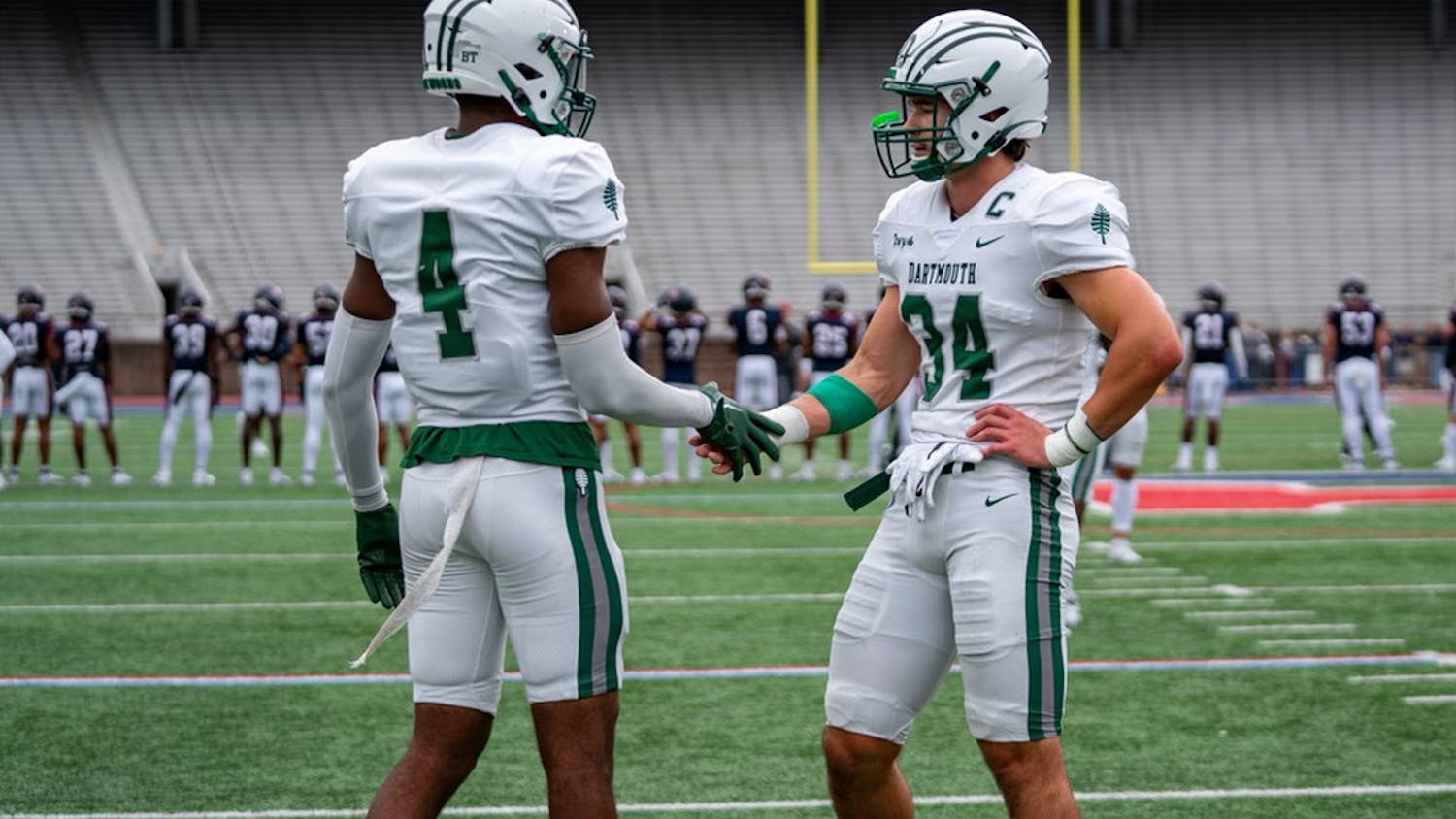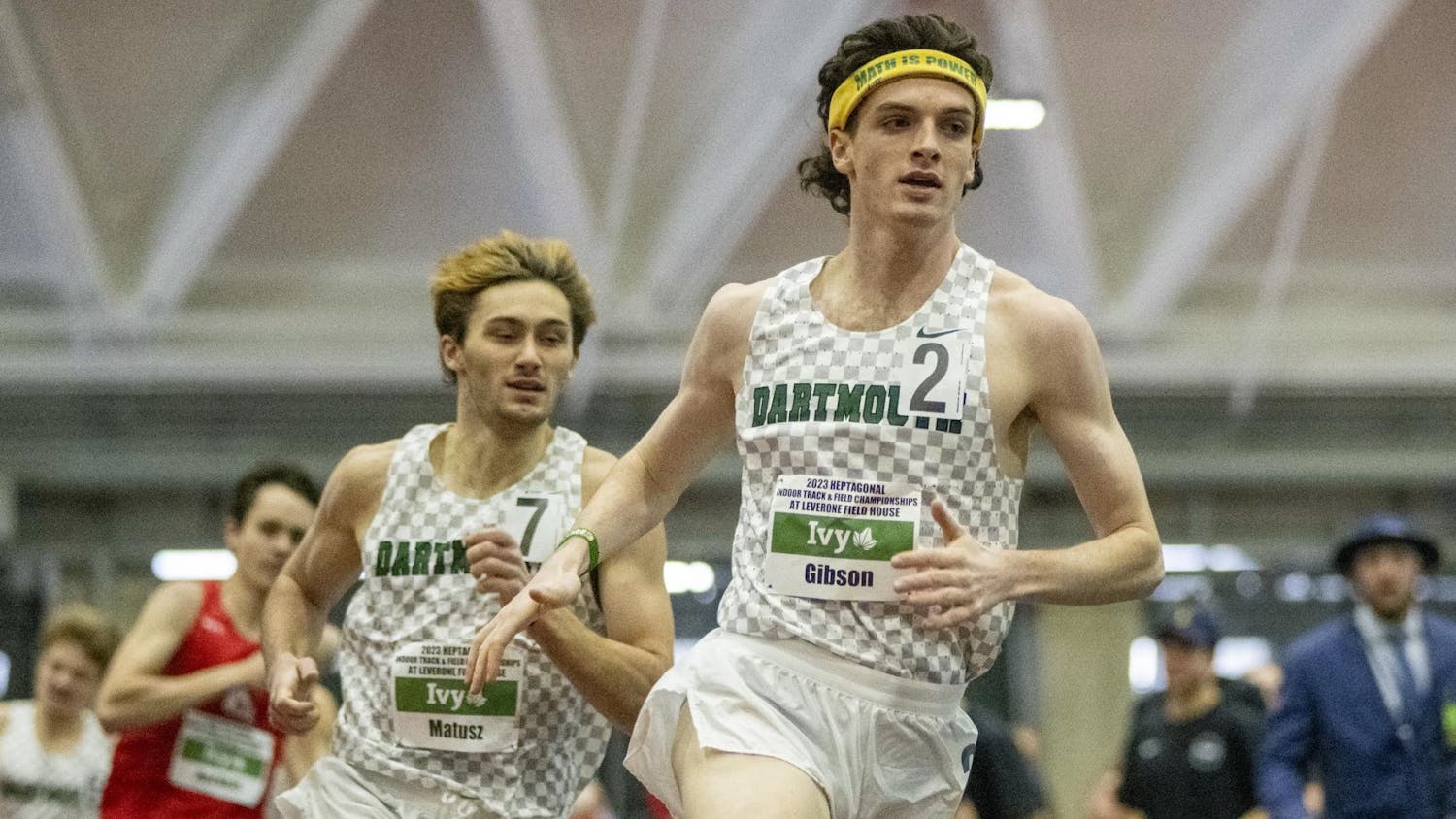Altering their route to avoid police activity and dodging yapping dogs, the Dartmouth Endurance Racing Team ran its Ultra-Relay across the state of New Hampshire on Saturday to raise funds for the Children's Hospital at Dartmouth. The team started at midnight from the Eliot Bridge in Dover, N.H., and ran non-stop to Hanover, arriving alongside a Hanover Police escort outside the Collis Center at 6:30 p.m. on Saturday.
A total of seven runners participated in the relay: captain Emily Koepsell '09; Dane Cooper MALS '10; Emily Eros '09; Lindsey Fitzgerald '11; Matt Smith '12; Gretchen Evans, a one-year transfer student from Smith College; and Donny Zimmanck, a Ph.D. candidate at Thayer School of Engineering.
The team prepared for the event with weekly runs organized by Keopsell. Eros said the runs were the most effective aspect of her training for the event.
"We didn't have a choice," she said. "Every Friday we went out to run 12 miles, for better or for worse."
While planning the team's exact route, Keopsell and Cooper discovered that the logistics of crossing the state by foot were surprisingly complicated, the pair said. For safety purposes, Keopsell and Cooper had to call various police chiefs to acquire permits from every town the team planned to run through.
"It was a long and tedious process," Cooper said.
Some towns were unwilling to grants the pair's request. The Town of Portsmouth, for example, refused to grant the team a permit just two days before the relay was scheduled to start. To ensure the runners' compliance, Portsmouth even threatened to send out police cars with the intention of arresting any runners they spotted. This left Keopsell with only one day to change the route of the run.
This confusion carried over to the beginning of the relay. The team reached its starting point an hour late, and, anxious to make up for lost time, started on a stressful note.
The seven runners tackled the route one or two at a time, in five- to 7.5- mile intervals. Each runner ran a total of three or four intervals. When not pounding the pavement, team members took refuge in a van provided by the College.
During the dark hours of the morning, the van trailed the runners, its headlights lighting their way. During the day, the van let the runners run ahead before catching up with them, checking in with each runner, and then driving ahead to the end of the stretch.
"We were always moving," Keopsell said.
The lack of sleep made the run particularly difficult for the relay's participants, Keopsell said, adding that it affected the runner's bodies in unexpected ways. The van, with its frequent stops, did not provide an atmosphere conducive to relaxation, other runners said.
"It was harder to sit in the van than to run," Eros said.
Several strange episodes kept the runners on their toes throughout the relay. A persistent, yapping poodle accompanied Smith for a part of his early morning run, and during Fitzgerald's 3 a.m. run, a spectator joined her on her path, explaining that he was building a bonfire with his friends.
As the team neared Concord, Fitzgerald was joined by a different eager-to-join spectator: her own mother, who ran by Fitzgerald's side for part of the interval.
The sheer distance of the route began to catch up with the runners about 10 miles from Hanover in Enfield, Keopsell said, but added that the police escort organized by the Town of Enfield motivated the team to finish strong.
The runners all jumped out of the van for the final mile back into Hanover.
"It was the only time I can remember wondering if I could finish," Fitzgerald said. "It took a lot of effort to get my legs moving again."
As the runners approached campus, however, they picked up speed. Upon crossing the finish line, Eros said that she felt ecstatic.
"It was an incredible feeling to know we had just run all the way across the state," she said.
"I felt relieved and accomplished," Cooper agreed. "I felt like we had done a lot of good for ChAD, which was the ultimate goal."
Keopsell termed the event was a success.
"We definitely want to do it again," she said.



